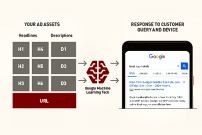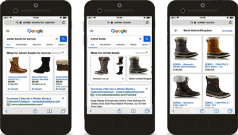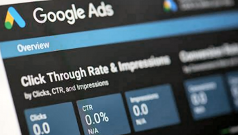Google characterizes this change as a "simplification"
If you've been using Broad Match Modifier (BMM) keywords in Google Ads campaigns, you probably know that Google began to phase this match type out in February 2021, and that you'll be unable to add new BMM keywords as of some time in July.
If you haven't used BMM keywords, in a nutshell, how they are set up is: you choose a keyword phrase like "maine rv campground" and because you don't want to pay for clicks from people looking for RV (Recreational Vehicle) campgrounds in Florida, etc., you put a "+" before a word that MUST appear in the user's query in order to trigger tour ad - in this case, "maine".
So your BMM keyword phrase looks like "+maine rv campground". Clickthroughs can be triggered by queries containing the words "rv" or "campground" or related words like "camper", "camping", "rv campground in maine", etc. but only if they contain the word "maine".
Google says it is now going to simplify your Google Ads campaign by eliminating BMM keywords and altering the behavior of Phrase Match keywords to address the gap left when BMM keywords go away.
If you haven't used Phrase Match, how these keywords are currently set up is: you pick a phrase that you want queries to include verbatim - same words, same order - enclose it in quotes and that's your keyword, like "maine campground". Your ad will be triggered by queries that exactly match the keyword "maine campground" but also by queries that include additional words before and/or after your keyword phrase, like "northern maine campground" or "maine campground in old orchard beach".
Now, since February 2021 and until July 2021:
- Ads connected to both BMM and Phrase Match keywords may be shown:
- For queries that include the meaning of your keyword phrase as well as the specific words in your keyword phrase
- For queries that have words in your keyword phrase but not in the order you provided if Google considers word order not to be important.
- Keywords containing the BMM "+" on one or more words will be treated as if all words had "+" - which means they'll be treated the same as Phrase Match keywords.
- Your existing BMM keywords will continue to work using the new BMM behavior.
- Google says there are no performance improvements to be gained by converting existing BMM keywords to Phrase Match. (And note that if you do that, past statistics will be lost.)
- If you have reason to believe that you can create new BMM keywords that will outperform the other match types between now and July, you can do that. (But otherwise this is probably not a good idea.)
- If you try to edit the text of BMM keywords, Google will change the match type to Phrase Match.
And as of July 2021:
- Google will no longer accept new BMM keywords.
- Any of your existing BMM keywords that are still active will then work with the new Phrase Match behavior.
Why would Google make this change?
One reason is probably the fact that across Google Ads, 95% of BMM keyword phrases have a + in front of every word. That makes these keywords the same as Phrase Match keywords except that Google will disregard word order.
Now under the new match type definitions, Google will permit flexibility in the word order of Phrase Match keywords when its AI believes that word order is unimportant.
How will this change affect campaign results?
- If you're using primarily BMM keywords with + on every word, there should be little change in your traffic.
- If you're using BMM but with + on some words and not on others, you'll probably see some loss in traffic as a result of Google now considering word order.
- If you're using primarily Phrase Match keywords, the new flexibility in the word order will likely result in more clickthroughs.
What should you do?
The new changes in match types are going to create functionally duplicate keywords. Find those and out of each group of duplicates, keep only the best-performing one.
What else will Google change this year? Stay tuned for updates.

 - David
- David





Comments on What to do with Broad Match Modifier keywords now that the match type is going away